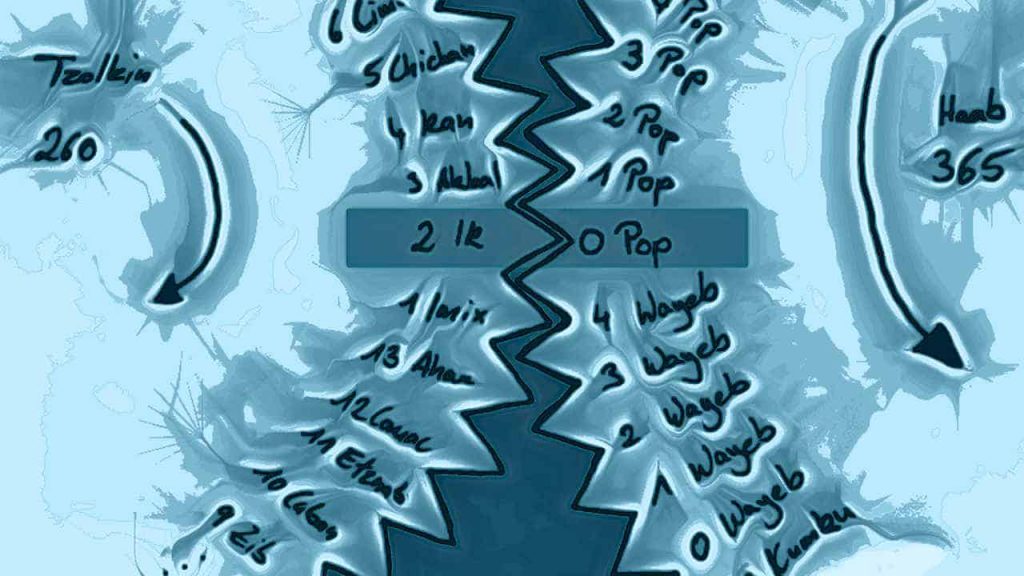This post “The Maya Calendar” is an excerpt of the 2nd edition of my book “The Maya Sites – Hidden Treasures of the Rain Forest”, a travel guide to the most important Maya sites on the Yucatán peninsula – in México and Guatemala. The 2nd edition will be published as print and ebook in spring 2018.
I split this article into seven parts:
- The Maya calendar – Part 1 – Introduction
- The Maya calendar – Part 2 – Haab, the Solar Year
- The Maya calendar – Part 3 – Tzolkin, the Sacred Calendar
- The Maya calendar – Part 4 – The Calendar Round <<– You are here
- The Maya calendar – Part 5 – The Long Count
- The Maya calendar – Part 6 – The Numbers and the Vigesimal System
- The Maya calendar – Part 7 – Dates and Numbers in the Inscriptions
The Calendar Round
The calendar round is the third type of calendar used by the Maya. It is basically nothing more than the combination of the two calendars Haab and Tzolkin.
For this purpose, the two calendars were turned against each other like two interlocked gears and the respective calendar entries were combined.
First, the date from the Tzolkin calendar is noted. Second, the corresponding date of the Haab calendar is added.
A simple date of the calendar round would look like this:
2 Ik 0 Pop
The next day would be
3 Akbal 1 Pop
And the next following day would be
4 Kan 2 Pop
The easiest way to understand the Calendar Round is to imagine the days of Tzolkin and Haab located on two different sized, meshing gears. Every day, both wheels turn further by one tooth.
Since the two cycles of the Haab and Tzolkin have different lengths, the combination of the two calendar systems gives unique day names.
These day names repeat only after 52 Haab years or after 18,980 days.
This method is quite useful for recording short periods of time. But if you want to document longer periods over several generations, then the system reaches its limits soon. Therefore, the Maya used an additional system: The Long Count.
Continue with >>> The Maya calendar – Part 5 – The Long Count

